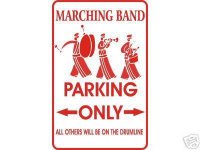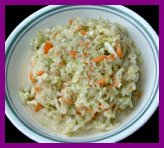December 28, 2005
New Orleans - Womb or Tomb?
Dorinda C. Bordlee, Esq.
Bioethics Defense Fund
bdfund.org
A watery tomb or the warm waters of the womb? Welcome to the mystery of New Orleans.
How will this mystery be solved? Some say the old grand dame is dead or dying. Some say she is being reborn. Could it be that both events are happening at the same time?
Many arguments are being made about why New Orleans matters - attempts to justify the billions that it will take to rebuild our levees and our lives.
As a New Orleans native, I've made these arguments myself to well-meaning people that questioned me in my place of displacement. Like so many, I argue that we must rebuild because we are a port city . . . because of the oil and gas industry. But the truth is that the port could operate without an entire City around it, and so could the oil industry.
As a matter of fact, the country could relocate the film industry if Los Angeles was shaken off her foundations, and we could do without most major United States cities should calamity befall them.
So the arguments we make to the rest of the country based on the usefulness of New Orleans are missing an important ingredient.
Maybe we should rebuild New Orleans simply because we love her. She is home to hundreds of thousands of hard-working American citizens. She has a history and she has a future if her levees are properly rebuilt. We should be there for New Orleans because we are called to care for one another in the tough times. That's reason enough, isn't it?
But the utilitarian mindset - that someone is valued only to the extent that they are useful to someone else - is not limited to Katrina politics. It pervades the mindset of those who see human lives themselves as valuable only if they are useful - those who seek to use human embryos as spare parts for embryonic stem cell research, those who seek to use fetal parts from aborted babies, those who seek to euthanize the disabled because they are of no use to anyone.
And if we can apply the utilitarian mindset to human lives so easily, it's no wonder that we do the same to a beloved American city like New Orleans.
Though we natives often personify New Orleans, I realize that the geographic location is not a person, nor is a place entitled to be treated only as an ends not a means as we should treat all human beings. But New Orleans is properly personified because she is a community of people whose lives have been intertwined for generations. New Orleans is distinctive because her people live life to the full - we live to eat, instead of eating to live; we work hard and play hard; we cry with our neighbors' during losses, and we dance at jazz funerals. We live a culture of life.
Maybe New Orleans is better viewed as the womb itself - and her citizens are like vulnerable unborn children who need the protection of state of the art levees. We've taken a hit that has humbled us all. So when we ask for national help, we do not demand it from a sense of haughty pride. We are simply asking for help from those who we hope love us enough to help us protect ourselves and our families.
As an attorney who advocates for the sanctity of every human life, this author is inspired by Mother Teresa's reminder that our main purpose in this life is to learn how to love and be loved.
I think I knew how to love pretty well, but it took Katrina to teach so many of us to learn how to be loved by those who took us into their homes and their schools expecting nothing in return.
My family witnessed extraordinary selfless love in Phoenix, Arizona.
One gentlemen gave us the use of his car for two months, two schools took us in with waived tuition, families rallied to bring us meals at the home of my law partner who took us in where we lived with 10 people under one roof. The school families even sent us gas cards at a time when gas was over three dollars a gallon! That's love, and my family and I learned the great virtue of humility by finding ourselves suddenly on the receiving end. We were of no use to these generous people. They helped us simply out of love and concern.
We're back home now experiencing the surreal in-between of an expectant mother of a high-risk pregnancy. New Orleans experienced a watery tomb, but now she awaits rebirth in an expectant womb. Let's choose life for the new New Orleans. Just because we love her.
Dorinda C. Bordlee is Executive Director of the Bioethics Defense Fund, a public interest law firm that advocates for human rights from beginning to end. She can be contacted at dbordlee@BDFund.org.









